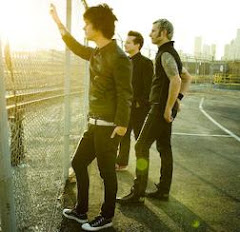
The ironically titled “Terribly Happy” (“Frygtelig Lykkelig”) is a taut Danish psychological thriller that doesn’t take itself too seriously, despite the bleak landscape it plays out against. This modern film noir is more like a subversive black comedy - a sinister take on Simon Pegg’s “Hot Fuzz.” Robert, a Copenhagen police officer, is exiled to the desolate outback town, Skarrild, to atone for his crimes (which include domestic violence and a nervous breakdown).
Robert, played by Jakob Cedergren (and bears a striking similarity to Hugh Laurie), is decidedly out of place - and the townsfolk are hardly interested in helping him fit in. While there is no overt hostility, he makes no friends at the bar (the center of the town’s social activity) and further sets himself apart by refusing the bartender’s just opened bottle of beer and asking for a soda. But he doesn’t want to fit in. He wants to get out!
Without further ado, Robert is immediately drawn into the drama of the town’s most difficult family - the Buels. Ingelise (Lene Maria Christensen) is the femme fatale/battered wife of Jorgen (Kim Bodina), the town bully/wife beater. But is Ingelise really a battered wife or is she just playing for attention. She quickly, and brazenly, flirts with Robert (who, we are reminded by his frequent calls home - is married and has a young daughter).
But despite the set-up for an ill-fated love triangle (Robert succumbs to Ingelise; Ingelise goes back to Jorgen; Jorgen resumes the beatings), events quickly spiral out of control - and include some interesting plot twists. More interestingly is that the trio’s activities (in all their various plot permutations) do not go unnoticed by the villagers! What makes this film work is how expertly a townie steps into the action - at the opportune moment.
The town is situated adjacent to a expansive bog. The film opened with a voice over description of a local fable about a cow that vanished in the bog - only to be recovered from the bog with two heads (one of which was human), and the bad luck that befell the town thereafter. The bog has a reoccurring role as the story unfolds.
In one of the more surrealistic elements of what sometimes seems like a nightmarish series of vignettes, instead of a physical fight - or duel, to play out the western motif - Robert and Jorgen “duke it out” with a drinking contest. The relationship between these two men (and their respective interactions with the town) is the focus of a good chunk of the second half of the film.
Finally, without giving away the resolution, the film's end is worthy of Sartre’s “No Exit” and Garcin's memorable realization, “Hell is other people.”
Wednesday, August 11, 2010
"terribly happy" ("frygtelig lykkelig") movie review
Labels:
foreign films,
movies,
reviews
Subscribe to:
Post Comments (Atom)



















No comments:
Post a Comment